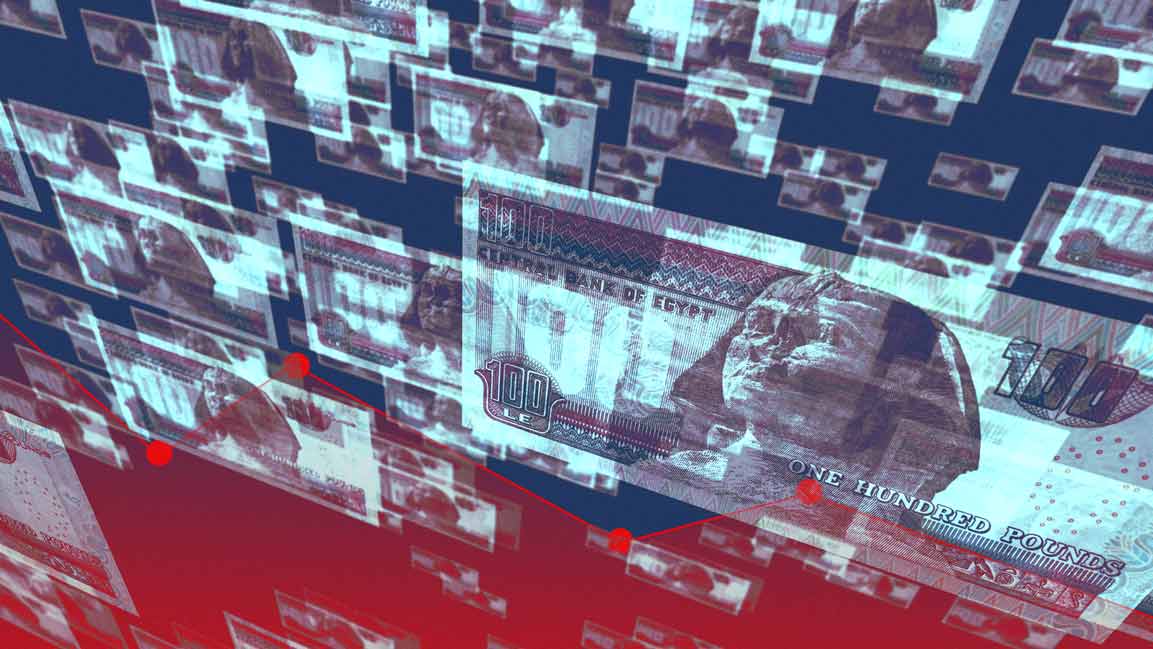- | 9:00 am
How currency devaluation is impacting businesses in Egypt
Entrepreneurs are pivoting their businesses and changing their business models to stay afloat.

Egypt’s recent move to devalue the Egyptian pound was met with mixed sentiments among entrepreneurs. It’s the latest in a series of devaluations since March 2022 as the country struggles to cope with its worst foreign currency crisis.
The crisis began during the pandemic and was later followed by the Russia-Ukraine war, which witnessed investors pulling an estimated $20 billion out of Egyptian debt. While Gulf states have stepped in with investments and asset purchases, some businesses have struggled to cope amid a weakening currency.
Mohamed El Rashidy, Vice President of Kemet Medical, a company that sells medical equipment to hospitals, labs, and research centers, says that the ongoing devaluations have strained his business for cash.
“Our contracts were in Egyptian pounds, and they had long validity,” he says. With the currency devaluing, equipment sales suddenly didn’t cover the purchasing cost. This drained a lot of cash because there were a lot of contracts going on.”
Coupled with supply chain challenges, El Rashidy also finds importing equipment difficult. Unlike in 2016, during one of Egypt’s earlier devaluations, he can no longer stock up on hardware to cover losses like he did before. “In 2016, there were no supply chain issues like today,” he says. “Our warehouse was full. So, if I lost during the devaluation by selling at a loss, my hardware increased in value. The damage was mitigated; it was not as big as today.”
PRICE STABILITY
However, the latest devaluation is stabilizing the price of the local currency, giving much-needed respite to Egyptian entrepreneurs and businesses.
Sandra Farid, founder of Acumen Consulting and former economic adviser to the Ministry of Tourism and Antiquities, says the latest move to devalue and free-float the pound was necessary. “The delay in devaluation resulted in speculation in the unofficial foreign exchange rate until it reached 70 EGP, which caused the cost of the products and services to inflate to the same rate,” she adds. “Now, the speculation has died, and the rate is clear.”
While the devaluation may have clarified the exchange rate and eliminated the black market for US dollars, concerns remain about how long this stability will last.
Recently published government figures indicate that some of Egypt’s main foreign currency streams have decreased recently. Revenues from the Suez Canal dropped by 40-50% in 2024 due to shipping attacks in the Red Sea, and remittance also fell 21% YoY between July and December 2023.
Meanwhile, exports declined 15.6% during January 2024, mainly due to decreased natural and liquefied gas exports, according to The Central Agency for Public Mobilization and Statistics.
Yet, with significant foreign currency entering the country, including the recent announcement of the UAE to invest $35 billion in Egypt’s Ras El-Hekma and the IMF’s extended loan of $8 billion, Farid expects the market to remain relatively stable for the next while.
“If you calculate how much money we make, how much our debt is, and how much we spend, you will find that we are good for about three to four years,” she says. “In reality, however, things don’t go like that. If Egypt does not increase its local production to substitute imported goods, the problem will prevail.”
BUSINESS PIVOTS
With uncertainty looming, entrepreneurs are pivoting their businesses and changing their business models to stay afloat.
“We had to change our business model completely,” says El Rashidy. “We now sell customers the product from the supplier directly, so they can transfer money to them. This helps distribute the burden of foreign currency to everyone. Otherwise, we quote in dollars to be stable in case any devaluation happens.”
Meanwhile, Nadia Gamal El-Din, founder of Rahet Bally, a financial platform, focuses on her customers’ essential needs. “We stopped expanding on fitness and facilities and focused instead on the super app, giving access to discounts on supermarkets, pharmacies, schools, nurseries, and clinics,” says El Din. “We focused our efforts on essential services to meet the needs of moms so that she would be prompted to pay for the annual subscription of the application and start saving on her everyday needs.”
Like many businesses in the country, Rahet Bally is also looking to neighboring Gulf States to expand its customer base. With 40% of the platform’s traffic from the GCC, the startup is setting up shop in Saudi Arabia.
Farid, who also recently launched her consulting firm in Saudi Arabia, says that businesses often explore entering new markets to increase their revenue potential in times of economic hardship. “It’s normal that when you have a problem with hard currency in a recessed economy, you will look for economies with business opportunities.”
FUTURE OUTLOOK
Despite the country’s economic challenges, some entrepreneurs are still betting on Egypt. Its large market size and unique consumer base make it attractive for businesses to set up in the country and expand their reach.
For El Din, she aims to grow the platform to reach more people across the country, particularly those living in remote areas. Although entering the Saudi market is key for the startup’s growth, she’s still focusing heavily on Egypt.
“We haven’t yet scratched the surface,” she says. “I’m still focused on Egypt because I believe so much can be done. Things are going to only get better from now on.”







































